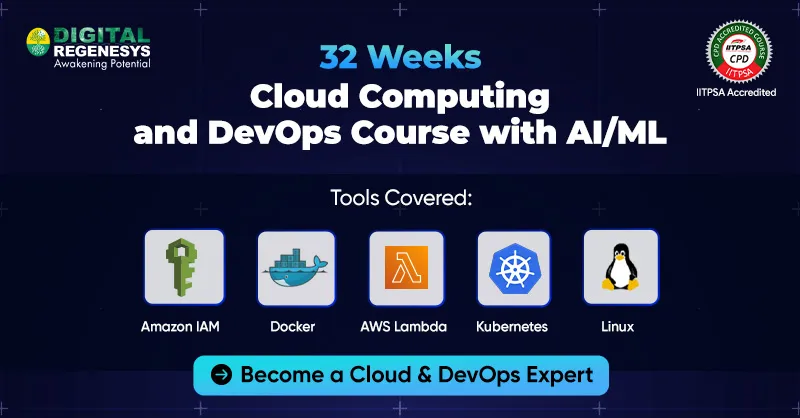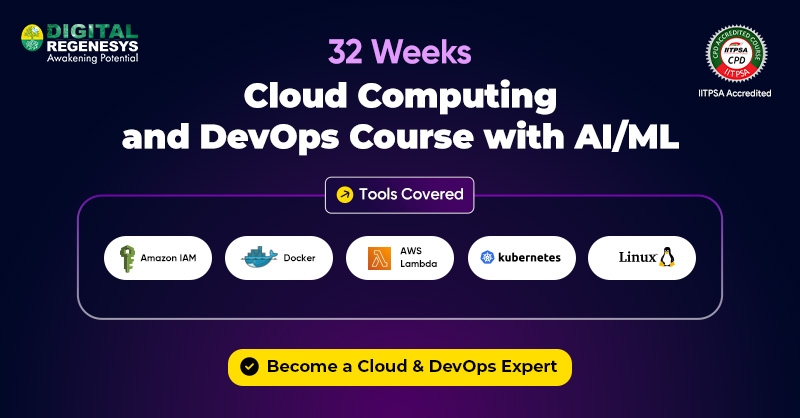How to become a Cloud Engineer in South Africa

In South Africa, the digital transformation of businesses has accelerated the demand for professionals who can manage cloud infrastructure and streamline software development processes. As a result, careers in Cloud Computing and DevOps have become increasingly popular among aspiring IT professionals. If you’re considering a future in tech, knowing how to become a cloud engineer in South Africa is a great starting point.
To succeed in this field, you must develop a deep understanding of cloud platforms, automation tools, and programming languages. With the right learning resources and consistent practice, you can prepare yourself for exciting roles in the country’s growing tech sector.
In this article, we will walk you through the steps on how to become a cloud engineer in South Africa. We’ll also cover essential skills, learning platforms, and job prospects to help you get started on the right path.
Why Choose a Career in Cloud Computing and DevOps in South Africa?
The demand for Cloud and DevOps professionals in South Africa continues to grow as more businesses migrate to cloud platforms and seek to optimise their development pipelines. By learning how to become a cloud engineer in South Africa, you position yourself for a future-proof career with high earning potential. Some reasons to consider this career path include:
1. High Demand Across Industries
Sectors such as finance, healthcare, retail, and telecommunications in South Africa are increasingly relying on cloud solutions and automation. This creates consistent demand for skilled professionals in cloud engineering and DevOps.
2. Opportunities for Remote and Global Work
Cloud and DevOps roles often offer remote flexibility, allowing you to work with global teams and clients. With the right certifications and experience, South African professionals can access international job markets.
3. Competitive Salaries and Career Growth
Cloud computing and DevOps professionals in South Africa enjoy competitive salaries, with the potential for significant growth as businesses continue to invest in cloud technologies. With the rapid adoption of automation and cloud infrastructure, these roles offer long-term career stability and opportunities for advancement in the tech industry.
Find the Best Way to Learn Cloud Computing Here

Skills Required to Become a Cloud Engineer or DevOps Engineer
If you’re wondering how to become a cloud engineer in South Africa, you need to develop strong skills in scripting languages like Python, as well as a solid understanding of cloud infrastructure management. These skills will enable you to deploy scalable systems, automate processes, and ensure secure and efficient cloud operations. Let us look at the skills required to become a cloud engineer in South Africa below:
1. Knowledge of Cloud Platforms (AWS, Azure, GCP)
Understanding how cloud platforms function is essential. Learn to use services related to computing, storage, networking, and security within platforms such as AWS, Microsoft Azure, or Google Cloud Platform.
2. Experience with DevOps Tools
Learn to use tools such as Docker, Kubernetes, Jenkins, Terraform, and Ansible. These tools help automate deployments, manage containers, and handle infrastructure provisioning.
3. Familiarity with CI/CD Pipelines
Building and maintaining Continuous Integration and Continuous Delivery pipelines is key to streamlining the development process and ensuring fast, reliable software releases.
4. Understanding of Networking and Security Concepts
A strong foundation in cloud networking, firewalls, identity and access management (IAM), and encryption helps protect cloud infrastructure.
5. Understanding of System Monitoring and Troubleshooting
Proficiency in monitoring cloud infrastructure for performance and security is essential. This skill is crucial for maintaining cloud systems’ reliability and performance across all stages of the development cycle.

Step-by-Step Guide to Becoming a Cloud Engineer or DevOps Engineer in South Africa
To become a cloud engineer in South Africa, start by obtaining a relevant degree in computer science or information technology. Knowing how to become a cloud engineer in South Africa involves following a structured learning path. Below are the steps on how to become a cloud computing engineer in South Africa:
- Start with the Basics of Cloud Computing: Begin by understanding the fundamentals of cloud computing, including deployment models (public, private, hybrid), service models (IaaS, PaaS, SaaS), and basic cloud terminology.
- Enrol in a Cloud Computing Course: Interested learners can enrol in a specialised course, such as the one offered by Digital Regenesys, which offers a structured path to developing competency.
- Build Scripting Skills: While enrolled, practice Python or Bash scripting to automate tasks. This is crucial for both cloud operations and DevOps workflows.
- Get Hands-On with DevOps Tools: Practice using tools like Docker for containerisation, Jenkins for automation, and Kubernetes for orchestration. You can use free labs and cloud sandboxes to build real-world projects.
- Understand Infrastructure as Code (IaC): Learn industry-relevant tools such as Terraform or AWS CloudFormation to write infrastructure in code. This allows you to manage and deploy resources automatically and consistently.
- Work on Real Projects and Build a Portfolio: Create a GitHub portfolio to showcase your projects, including cloud architecture diagrams, automation scripts, and CI/CD pipelines. This helps potential employers evaluate your practical skills.
- Apply for Internships or Entry-Level Roles: Once you have the foundational skills, begin applying for junior cloud engineer or DevOps engineer roles to gain real-world experience.
Check the Fundamentals of Cloud Computing here
Top Institutes & Platforms to Learn Cloud Computing and DevOps
If you’re wondering how to become a cloud engineer in South Africa, selecting the right learning platform is essential to building a strong technical foundation. One of the leading options is Digital Regenesys, which offers a well-designed IITPSA-accredited Cloud Computing and DevOps Course tailored for aspiring professionals in South Africa.
This course covers important concepts across cloud platforms and DevOps practices, equipping you with practical experience in tools such as AWS, Docker, Kubernetes, Jenkins, and more. With industry-aligned instruction, flexible online learning, and a focus on practical implementation, Digital Regenesys helps you build job-ready skills. Whether you are beginning your journey or looking to specialise, this course prepares you for the evolving cloud and DevOps job market in South Africa.
Listed below are some highlights of enrolling in the Cloud Computing and DevOps course by Digital Regenesys:
- Live interactive sessions with access to online study material
- Industry-aligned curriculum, which includes over 20 tools
- Instructors with years of practical experience
- IITPSA-accredited course that rewards 30 CPD points
- Globally recognised certificate provided by Digital Regenesys
Explore Different Steps on How to Learn Cloud Computing Here

Job Opportunities & Salary Expectations in South Africa
In South Africa’s cloud computing field, job opportunities are expanding, with high demand for roles such as cloud engineers, cloud architects, and cloud security specialists. As more companies adopt cloud technologies, professionals skilled in platforms such as AWS, Azure, and Google Cloud are sought after. These positions offer competitive salaries and growth potential in a rapidly evolving industry.
Listed below are some career options you can explore:
- Cloud Engineer: Responsible for designing, deploying, and managing cloud infrastructure. They work with cloud providers to build scalable and secure solutions for businesses.
Salary: R649,250
- DevOps Engineer: Focuses on automating software development and deployment processes. They collaborate with development and operations teams to maintain smooth CI/CD workflows.
Salary: R780,318
- Site Reliability Engineer (SRE): Combines software engineering and system administration to ensure system reliability, scalability, and performance. SREs are essential in companies with large-scale cloud infrastructure.
Salary: R757,500
- Cloud Specialist: They are responsible for designing requirement-specific cloud-based solutions for businesses. They also need to implement and help manage these solutions.
Salary: R1,200,000
- Platform Engineer: Builds and maintains the foundational platforms used by development teams. They ensure systems are robust, scalable, and easy to deploy.
Salary: R822,709

Conclusion
Cloud computing and DevOps are shaping the future of IT, and South Africa is no exception. If you’re wondering how to become a cloud engineer in South Africa, the lies in gaining the right skills, certifications, and hands-on experience. Whether you’re a recent graduate or switching careers, enrolling in a structured course like the one offered by Digital Regenesys can help you achieve your goals.
By following the steps outlined in this guide and staying up-to-date with industry trends, you’ll be well-prepared for a rewarding and impactful career in this fast-evolving tech domain. Visit Digital Regenesys today to invest in a future-proof career.
Last Updated: 20 November 2025
